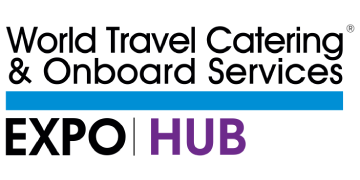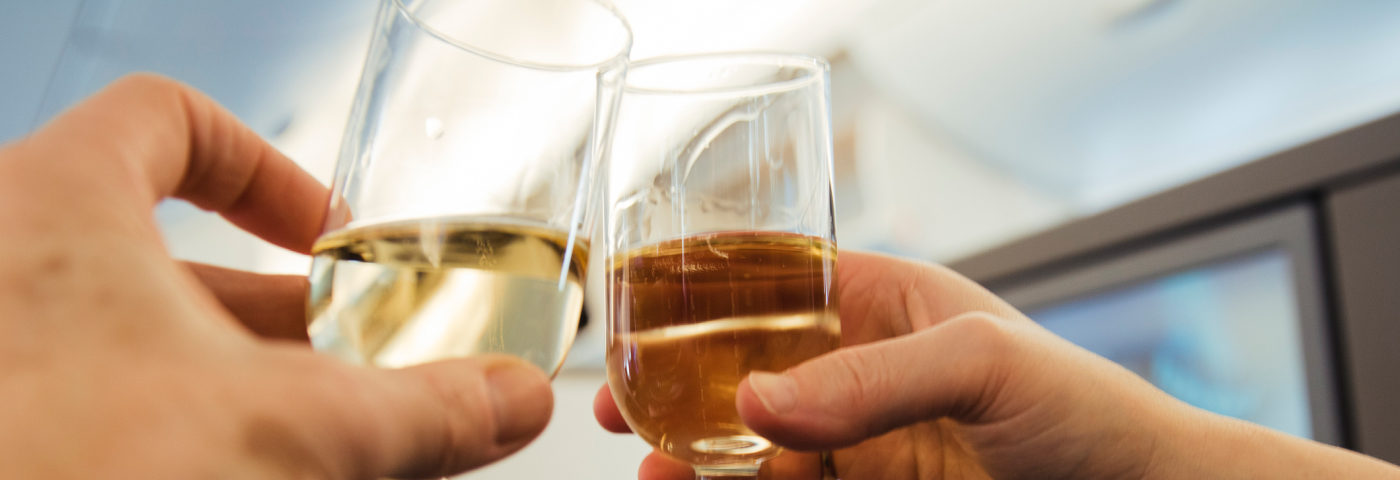A shift in consumer habits is driving the beverage category forward in 2020 and beyond. Health, wellbeing, and sustainability were all key considerations prior to COVID-19. We expect these trends to grow even more with health and wellbeing at the front and centre of passengers’ minds.
Here are the trends to watch out for in the rest of 2020:
1. Low-and-no alcohol set to grow
At World Travel Catering & Onboard Services Expo 2019 (WTCE), two in five buyers were seeking out new alcoholic and non-alcoholic beverage products for their passengers. Even more new options were set to be displayed at WTCE 2020 but we expect the low-and-no trend to continue on an upward trajectory.
A surge in the popularity of healthier and higher-quality products is fuelling demand for low-and-no alcohol alternatives across the beverage industry. Consumers are becoming more health-conscious and are willing to experiment with “better for you” alternatives.
There are about 6.1 million adults in Great Britain who don’t drink alcohol. This is an increase of 59% year-on-year
This trend has already been recognised by a number of major airlines. Virgin Atlantic introduced the world’s first low-and-no onboard alcohol cocktail menu to its economy, premium and upper-class passengers in early 2020.
A Bloody Mary is a staple of many breakfasts across the world but there are non-alcoholic versions available. The vegan and gluten-free Virgin Mary from Longbottom & Co. is a modern classic that still packs a punch without the alcohol. Their offering is available in 150ml and 250ml cans and is sure to awaken the senses on an early morning flight.
2. Traditional Alcohol sales stay strong
Despite the growth of low-and-no alternatives, alcohol remains an essential category onboard and significantly contributes to total revenue for many airlines. Research within the sector shows consumers are willing to pay a higher price tag for that premium product and operators are managing their product portfolios accordingly.
This is evident from British Airways’ 2019 activity, which included three new drink options for its World Traveller Plus passengers. They added the Gin Fizz, a Bloody Mary and the non-alcoholic Citrus Twist to its range of cocktails.
Low-cost carrier Ryanair has been carrying Heineken 0.0 since 2018 as an alternative for its passengers and we expect more airlines to follow suit this year.
3. The changing soft drinks market
Health and wellbeing are themes that continue to prevail within the soft drinks sector too. Sugary options are now less popular with plant-based waters, kombucha and functional beverages gaining in popularity. It’s not just exotic and unfamiliar products that have seen strong sales in recent years, as bottled water has also proven to be a product that has benefitted from consumers’ seeking out healthier alternatives.
UK-based soft drink manufacturer Radnor Hills wants to help operators capitalise on the demand for healthier alternatives with its range of canned spring waters, which it launched this year. Their lightweight 330ml aluminium cans are easy to transport, leak-proof and have a long shelf life. The cans are also 100% recyclable to help with sustainability concerns.
4. Recycle, Recycle, Recycle
Soft drinks suppliers are becoming increasingly aware of the importance of switching to more sustainable formats, as excess packaging and single-use plastic begin to influence consumers’ decision making. The ‘Green is Possible’ line from Global Inflight Products is one option with biodegradable and recyclable products such as cups, straws, napkins and more available.
5. Sealed alternatives for COVID-19
The COVID-19 pandemic has forced airlines to reconsider their complete offering. Many removed their food and drink service at first to reduce touchpoints between crew and passengers. Delta has introduced a small bag containing bottled water and snacks, with the bag also doubling for a place to dispose of used items. While this may increase plastic use in the short-term, it will be necessary to ensure passenger safety.
Some airlines have removed alcohol completely from their offering for now. American Airlines has been quick to remove alcohol from flights that are shorter than 2,200 miles and is limiting alcohol to only First Class on longer flights.
Until the COVID-19 pandemic eases, we expect there to be only sealed options offered onboard. Hopefully, sustainable providers can step up to provide environmentally friendly alternatives in the coming months to offset the use of plastic.
A fast-changing landscape
Until travel fully resumes, airlines and train services will need to quickly find solutions for COVID-19 worries. Beyond that, we expect the other trends to continue and find their way onboard in 2020.

